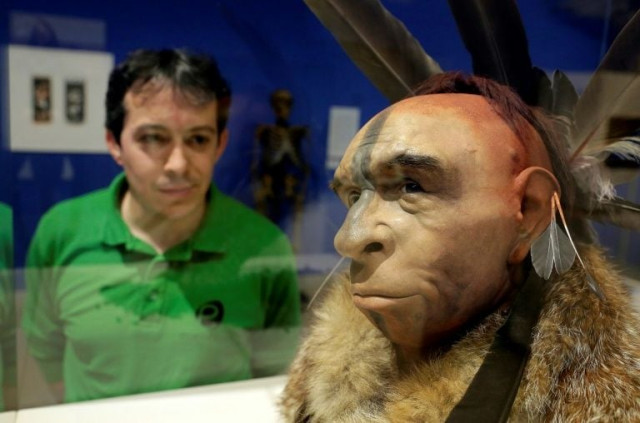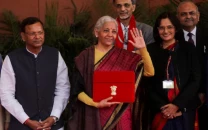Multiple 'out of Africa' migrations gave rise to modern human population, say scientists
A single 'out of Africa' migration history for early humans does not hold true anymore, new study reveals

A visitor looks at "El Neandertal Emplumado", a scientifically-based impression of the face of a Neanderthal who lived about 50,000 years ago. Scientists estimate that among non-Africans today, one to four per cent of the DNA comes from Neanderthals. PHOTO: AFP
Rather, multiple migrations out of Africa, beginning 120,000 years ago, gave rise to the modern population of people, said the findings in the US journal Science.
Advances in DNA analysis and other fossil identification techniques, particularly regarding discoveries in Asia, are helping to rewrite what we thought we knew about our origins.
Early humans more promiscuous than modern-day people
A "plethora of new discoveries" over the past decade has shown that modern humans, or Homo sapiens, reached parts of the Asian continent much earlier than previously thought, said the report.
Remains of Homo sapiens have been found at multiple sites in southern and central China, going back to between 70,000 and 120,000 years ago.
Other fossil discoveries show that modern humans reached southeast Asia and Australia prior to 60,000 years ago.
Scientists develop camera that can see through human body
"The initial dispersals out of Africa prior to 60,000 years ago were likely by small groups of foragers, and at least some of these early dispersals left low-level genetic traces in modern human populations," said Michael Petraglia, a researcher at the Max Planck Institute for the Science of Human History in Germany.
"A later, major 'Out of Africa' event most likely occurred around 60,000 years ago or thereafter," he said.
Recent research has confirmed that this mass migration 60,000 years ago "contributed the bulk of the genetic make-up of present-day non-Africans," said the report.
Mystery 'hobbits' not humans like us: study
These early voyagers interbred with other species, including Neanderthals and Denisovans and one currently unidentified population of pre-modern hominins, in many locations across Eurasia.
Scientists estimate that among modern non-Africans today, one to four per cent of the DNA comes from Neanderthals and as much as five per cent may be from Denisovans.
"It is now clear that modern humans, Neanderthals, Denisovans and perhaps other hominin groups likely overlapped in time and space in Asia, and they certainly had many instances of interaction," said the study.



















COMMENTS
Comments are moderated and generally will be posted if they are on-topic and not abusive.
For more information, please see our Comments FAQ